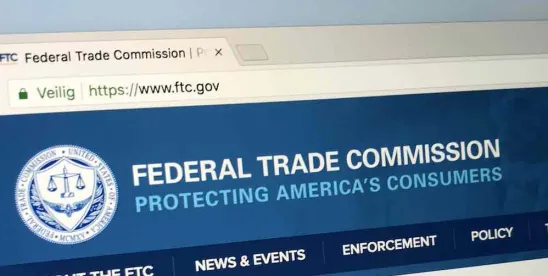Last week, a federal judge in North Carolina declined to preliminarily enjoin Novant Health, Inc.’s (“Novant”) acquisition of two hospitals from Community Health Systems, Inc. (“CHS”). The FTC filed suit in federal court and in its in-house administrative court in January, alleging that the transaction violated Section 7 of the Clayton Act in the market for inpatient general acute care services sold to commercial health plans and their members.[1] Specifically, the FTC alleged that Novant’s acquisition of Lake Norman Regional Medical Center (“Lake Norman Regional”) and Davis Regional Medical Center (“Davis”) would “threaten to substantially lessen competition for critical healthcare services in the ‘Eastern Lake Norman Area’ which primarily includes Iredell County and northern Mecklenburg County.”[2] The court found that this most narrow definition of the Eastern Lake Norman market ignores the commercial reality of the competitive presence of Atrium Health,[3] but otherwise accepted the FTC’s product and secondary geographic market definitions.
The decision is the first hospital merger decision in the modern era where the government proved its case on market definition and concentration but lost the decision on equitable grounds. The court ruled that—on balance—the equities favored allowing the sale to go forward because the loss of critical mental health services, the addition of service lines that were no longer offered at Lake Norman Regional, and Novant’s commitment to not raise prices for three years after the acquisition outweighed the concern of loss of tax revenue from two for-profit hospitals being acquired by a non-profit system.[4] The court further ruled that the transaction carries at least as much likelihood of competitive benefits as it does competitive harm and that the FTC was unlikely to be successful in proving that the transaction may substantially lessen competition in its in-house administrative tribunal.[5]
This case is significant for several reasons. First, the court reasoned that Congress chose not to define “substantially” in the language of the Clayton Act, which reflects a conscious avoidance of exclusively mathematical tests when evaluating the potential competitive effects of a merger. In application, even where a merger may exceed the Government’s proscribed concentration thresholds, courts may still weigh the equities and find that preliminarily enjoining a transaction would be against the public interest when immediate competitive harm is not likely.[6]
Second, the court credited the defendants’ position that unique economic circumstances undermined the government’s prima facie case. There was evidence that one of the hospitals (Davis) would close absent the transaction and the other’s competitive position would continue to corrode, [7] including because of its loss of important services, lack of nurse staffing, and lack of a sufficient physician practice network and other access points of care sufficient to justify investments among other better alternatives for scarce capital.[8] These unique economic circumstances—that the two hospitals would no longer be viable competitors in absence of the proposed transaction—justified an otherwise potentially unlawful loss of competition.[9] In the court’s view, the unique economic circumstances made the sale at least as likely to enhance competition as it was to reduce it.[10] This portion of the court’s opinion is critically important to health systems with hospitals which are struggling financially, with no real hope of earning enough margin to return the cost of capital, but which are not immediately exiting the market. If the 4th Circuit upholds the judgment on this issue it could signal a new round of health care provider consolidation, and accordingly, we expect the FTC’s appeal brief to characterize it as legal error instead of a factual finding.
Third, the court reasoned that the commercial realities suggest that the FTC was unlikely to be successful in establishing that the transaction was likely to result in a substantial lessening of competition.[11] While the district court accepted the FTC’s alleged product and geographic market definition, the court observed that the FTC’s primary geographic market did not account for the presence of Atrium Health because it does not have a general acute care hospital in the area yet. The court said the FTC’s proposed primary geographic market “ignores the commercial reality that Atrium already claims a significant share of the market for patients living [in the Eastern Lake Norman market].” The court found that commercial realities such as the Eastern Lake Norman market’s importance to commercial insurers and narrow networks, as well as Atrium’s presence, were better reflected in the FTC’s secondary geographic market, the broader Center-City/Northern Charlotte Region market.
The court noted the significant influence Atrium plays in the market as the largest health system in North Carolina and “dominant hospital system in the Charlotte area.”[12] The court acknowledged that the FTC underplayed the competitive significance of Atrium in the Charlotte and Eastern Lake Norman market, noting that it is essentially, “a two-horse race, with one horse clearly in the lead.”[13] The court otherwise generally accepted the FTC’s preliminary case and levelled no criticism at the government’s expert, Dr. Steve Tenn.
Key Takeaways
- The decision here seems to hinge, at least in part, on CHS’s decision to discontinue investments in Lake Norman Regional, the fact that Davis will close absent the transaction, evidence that no other systems bid on Lake Norman Regional, and the lack of evidence that any of the other health systems in the area would change their minds or a new bidder would emerge.
- Presumptions in the merger guidelines can be overcome when there is evidence that a market is already highly concentrated to begin with.
- In weighing the equities, courts can look beyond economic predictions or assessments of what “could” happen to determine what is likely to happen in fact. Further, the court in this case acknowledged the FTC’s characterization of the defendants’ arguments as the “Hail-Mary pass of presumptively doomed mergers,”[14] but did not treat the parties’ arguments with respect to the financial and competitive positions of the target hospitals as such.
- The court did not hold that the hospitals represented “failing companies” or engage in the requisite analysis to determine whether the seller had made sufficient attempts to find another buyer who was less likely to substantially lessen competition; nevertheless, the court found another way to factor in the financial condition of one hospital and likely closure of another as extremely relevant to the analysis.
The FTC’s administrative complaint is still pending, but the temporary restraining order allows that the defendants may consummate the proposed transaction on the fifth business day after the court’s ruling on the FTC’s request for a preliminary injunction. The FTC has filed a notice of appeal to the Fourth Circuit.
The Mintz Antitrust Section continues to monitor developments in hospital merger litigation with the FTC. If you have a question about enforcement in this area, please contact one of the individuals listed above or your regular Mintz attorney.
[1] In the Matter of Novant Health, Inc., and Community Health Systems, Inc., FTC Administrative Complaint, Docket No. 9425 (Jan. 25, 2024), available here.
[2] Id. at 1.
[3] Order, FTC v. Community Health Systems, Inc., and Novant Health, Inc., Civil Action No. 5:24-CV-00028 at p. 44 (June 5, 2024) (hereinafter “Novant Order”).
[4] Id. at 6.
[5] Id.
[6] See id.. at 53.
[7] Id. at 48.
[8] Id. at 26, 49.
[9] Novant Order at 51.
[10] Id.
[11] Id. at 52.
[12] Id. at 16.
[13] Id. at 17.
[14] Id. at 49.






 />i
/>i

